How 3 women in their thirties fought breast cancer
Breast cancer fighters reveal how they drew strength to fight the dreaded disease
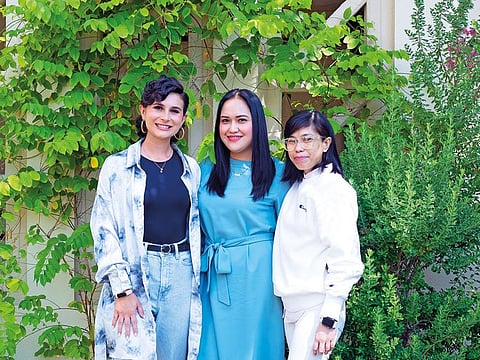
Breast cancer in younger women is rare, but it is the most common cancer among women in the age group of 15 to 39, says a Yale Medicine report. An expert adds that while breast cancer is most typically diagnosed in post-menopausal women, ‘the condition can and does happen in young women, too’. According to an online report by Cleveland Clinic, five per cent of breast cancer cases occur in women under 40 years of age.
The US Centers for Disease Control and Prevention reports that overall, about 11 per cent of all breast cancers occur in women younger than 45.
In the UAE too, breast cancer cases are being diagnosed in women in the age group of 20 to 45 years, with experts suggesting that it is better for younger women to get screened as the survival rate for early detection in Stage 1 is nearly 98 per cent.
One of the three main cancers among women along with cervical and thyroid cancers, breast cancer is being detected in women as young as 30 and even below. This being the International Breast Cancer Awareness month, experts are reminding women to go in for screening if they notice anything unusual in their body.
Three women– two of whom were diagnosed with breast cancer in their twenties and one in her early thirties– reveal how they fought the condition:
‘I need to fight this’
Jennifer Paloma Salong remembers crying for almost two hours in a parking lot in Dubai when she learnt she had breast cancer. Just 28 years old at the time, she was diagnosed in 2017 with Invasive Ductal Carcinoma, a type of cancer that develops when abnormal cells growing in the lining of the milk ducts change and invade the breast tissue.
A cashier, she recalls how initially she used to feel intense shooting pain in her breast. After seeing an online video, she decided to do a self-examination and was shocked when she felt a small lump. Worried she consulted her GP who advised her to get an ultrasound scan done.
Sadly for Jennifer, the scan revealed a suspicious, malignant lump. ‘At first it was 2cm but it quickly grew to 4cm. That is when I went into panic mode,’ she says.
Jennifer, who had arrived in Dubai in 2012 and has no history of cancer in her immediate family, was initially devastated to hear the doctor’s words. ‘My doctor suggested I get a full mastectomy done. It was extremely shocking for me and I felt I would not survive. But after some time, I reminded myself not to succumb to that thought process, else I would lose my battle. I forced myself to switch to a more positive frame of mind.’
With no family here for support, she quickly realised that ‘I need to act with force and resilience as I am my own support’.
She then started seeking foundations that could help her ‘since I would not be able to afford the treatment. It was then that I stumbled upon Sharjah University Hospital where I underwent treatment. Friends Of Cancer Patients (FOCP) supported me covering almost all my expenses for the treatment - specifically chemotherapy. I am so grateful to them.’
Dealing with chemotherapy was the most painful part of the treatment, she says, adding checking into the clinic for the chemo session and then heading to work the next day despite the vomiting and nausea was agonizing.
The entire treatment lasted a little over a year. ‘The tumor has totally gone; I am blessed,’ says Jennifer.
A teetotaler and non-smoker, she says: ‘I was the first one in my family to get this condition. I was really shocked. I asked my doctors why and how I got this kind of illness. They said it could be because of the lifestyle. Since then, I have changed my eating habits. I eat healthy, exercise regularly and follow my doctor’s instructions.’
Jennifer admits that prior to the cancer, her food habits were far from healthy. ‘I was eating a lot of canned, junk and processed foods, and a lot of red meat. I was working long hours and did not have the time to cook; I was not eating fresh food at all. I’m not sure, but I guess that had a role to play. My doctors say it could be stress, eating processed food or even a faulty gene.’
Despite the harrowing moments she went through, Jennifer now prefers to look at the brighter side of life. Her faith and her prayers, she says, have helped her a great deal in coming to terms with the condition and helping her shed her negative thougths.
‘I am convinced that God has a huge part to play in my health getting better as He is going to take care of me. I never lost my smile, even though I lost my hair– a woman’s pride. I used to wear makeup to make myself feel good and perk up my mood.
‘There are people who are suffering from so many challenges, so why should I complain about a mastectomy?’ she says, with a smile. before adding ‘Yeah I am not sick; who says I am sick?’
‘How can I have cancer if I’m not ill’
For Sian Moss, a teacher at Gems Wellington School and an extremely active person, it all began one morning, in May last year when she felt an intense pain in her shoulder while exercising. ‘I had been in the gym and I felt this shooting pain while raising my shoulder,’ she recalls.
Later that evening, Sian conducted a self examination and detected a lump, ‘like a tiny marble in my breast that I had not noticed before,’ she says. She made a mental note to get herself checked although ‘I did not feel ill or had no other symptoms’.
Her doctor who examined her told her to get an ultrasound scan done and a biopsy just to be sure.
A week before her 28th birthday Sian Moss was diagnosed with Triple Negative Breast cancer.
‘I do not have a family history of any kind of cancer, so it was completely out of the blue,’ says the 29-year-old. ‘The lump was less than 2cm and it was pure luck that I got it checked because although it was stage 1, it was grade 3 cancer which means it had the potential of spreading like a wildfire across my body. I had two lymph nodes that were inflamed and doctors said that if I had left it, it would have been disastrous. The cancer was extremely aggressive.’

For many days, Sian struggled to believe that she had cancer. ‘My first reaction was, ‘how can I have cancer if I’m not ill?’ The other thing was that I’m 28 years old. How could I have cancer [at such a young age]?’’
Her doctor informed her that there are different types of breast cancer and her’s was a rare one as it did not test positive to any of the regular hormone tests usually carried out. ‘Only 15 per cent of people worldwide are diagnosed with this type which is also the most aggressive.’
A single woman, Sian did not rush to tell her family about her condition. Instead, she gathered all information she could on the cancer such as the stage, type, treatment options available. She was aware that ‘panic attracts panic’. ‘I first wanted to absorb the news myself and be in a calmer state of mind before sharing it with my parents hoping they too would react in a similar way.’ And it worked. ‘They reacted well to the news, after which they came over to visit me when I was half way through the treatment,’ she says.
Sian admits that her lifestyle is no different from many of her friends her age. The doctors felt her genetic makeup could be a reason for the the cancer. ‘The use of contraceptives increases your chances of getting breast cancer, and I had been on the pill for some 15 years.’ She attained puberty at the age of 9. ‘Getting your periods early, being on the pill, [could be] huge leads to breast cancer,’ she believes.
Sian had 16 rounds of chemotherapy (including an extremely strong one), a lumpectomy, 6 rounds of radiotherapy and 6 months of chemo tablets. She lost her hair during the chemo sessions. ‘I didn’t feel well, not unwell, just not like myself. I am a very sociable person, wherein I can have ten conversations simultaneously in a room full of people. But, when I was on chemo, I could barely hold one conversation; I just could not focus. And, I just wanted to eat 24/7’, Sian reminisces.
Her advice to women is not to ignore their health. ‘If you feel there is something not right, get it checked; don’t let someone tell you that you are not old enough to get a mammogram. Catching it early can save a lot of pain.’
Sian also suggests developing a positive frame of mind. ‘You can think, ‘why did this happen to me’, but that doesn’t help. It can happen to anyone. My oncologist told me, ‘if you go with an open, more positive mindset, you will fare much better. And yes, my faith helped me get through this too. I firmly believe that you are given things because you can handle them.’
‘My faith saw me through’
Bertlin Batiancila, fondly called Bianca Ivy by her family and friends, had a pet name ‘bunso’, a word in Tagalog meaning ‘youngest’. That though would be a term she would not be happy to hear when nurses at an oncology center used it as she was the youngest breast cancer patient they had treated there. ‘I was sad about it but at the same time I was happy because I cannot imagine someone younger than me facing this kind of situation, to have that acceptance and strength,’ says Bertlin.
Bertlin was 32 years of old when her world changed one afternoon in December 2019 after she noticed a lump near her collar bone. ‘I love to keep my home spic and span,’ she says. ‘That afternoon, I remember stretching my arm to reach a spot to scrub when I felt something odd near my collar bone. The next day I realized I had a lump there.’ A few days later she detected a few lumps in her breast too.
A consultant in an investment management company, she was aware that a history of cancer was present in her immediate family. ‘My mom was diagnosed with Leukemia and my dad had succumbed to colon cancer. I also have aunts who have cancer, one with breast cancer. So, when I detected the lumps, I said to myself, ‘I need to get this checked’, says Bertlin.
She quickly scheduled an appointment with a doctor for a test. ‘I was with my friend to collect the results of the test when the doctor came into the room and informed me of the devastating news.’ She had ER/PR positive (Estrogen Receptors; Progesterone Receptors) with HER2/neu negative cancer. It was in stage 4.
‘My first thought was ‘I should not be crying’ because I wanted to understand what was happening to me. However, my friend was in tears as was the nurse.’
Her treatment included a combination of tablets and injections which were expensive and not covered by her insurance. ‘So, my doctor enrolled me into the Sawiyan program which supported the costs of my medicines.’ Bertlin was also supported by the Jalila Foundation. ‘I was living with the support of these foundations. I’m very grateful to these charities. I’m also happy I got treated in Dubai. The doctors and nurses here are so caring and considerate.’
She believes that one has to be emotionally strong. ‘But it helps a lot when other people are whole-heartedly taking care of you. I am thankful to everyone who were a big part of my journey.’
Bertlin advises, ‘Being proactive and preventing it is wise. Don’t dismiss [such lumps] as ‘it can’t be cancer’. I understand people don’t want to get checked because of the fear of having cancer. But think of it this way– you will catch it early and today’s treatment of cancer is way more advanced than before.
‘My message to those who are battling cancer now is that the quality of your life is determined by the quality of your thoughts, so please be intentional in cultivating your mind with positive thoughts. I firmly believe that you are given a challenge in accordance with your capability. Be gentle with yourself. We might have the greatest support from everyone, which we should be grateful for, but at the end of the day, it is our own battle to overcome. Your faith can help you see things through.’
WHAT THE EXPERTS HAVE TO SAY
Dr. Maharra Hussain
Specialist, General and Breast Surgery, Mediclinic Welcare Hospital
According to Dr. Maharra Hussain some signs to watch out for are a sudden onset of painless masses around the breast, dimpling and/or wrinkling of the skin, nipple encrustations and itching.
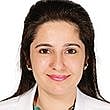
“Increased breast-focussed screening programmes have also been considered as reasons for increased breast cancer detection rates, especially in younger patients,” asserts Dr. Hussain.
Dr. Taghreed Almahmeed
Consultant General Surgeon & Breast Cancer Specialist, Al Zahra Hospital Dubai
‘Breast cancer numbers are on the rise these days due to many factors, mainly lifestyle changes. A very sedentary lifestyle has a major role to play as has obesity. Patients with a high Body Mass Index (BMI) are more at risk. Smoking and alcohol consumption are also risk factors, she says. Other risk factors include dietary choices these days which upset the hormone balance.
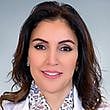
Dr. Ritu Khare
Consultation Surgeon, Breast oncologist at Kings College Hospital and Saudi German Hospital Dubai
Of late we are finding breast cancer in patients below 40 than we used to earlier, says Dr Khare. The cause is not clear, but some of them are genetically predisposed. [Some other] factors are diet, sleep, obesity, body profile, hormones, exposure to radiation and epidemiological factors.’
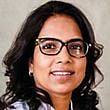
Dr. Khare strongly advises that women above the age of 20 years be taught to be ‘breast aware’. ‘We have to discuss these changes at a young age and educate them about what is considered an abnormal finding and also encourage them to shed their inhibitions and get examined by a doctor at the earliest if they find anyting abnormal. ‘The best way for breast cancer patients to gain confidence is for them to meet and speak to another person who has been through the ordeal and come out victorious. ‘The treatment also has changed drastically over the years. Chemotherapy is delivered in an ambience that is less intimidating and experts are on hand to help build morale and confidence to beat this beast.’
Dr. Houriya Kazim
Breast Surgeon / Founder and President of Brest Friends
‘For many early-onset cancers, there is evidence to suggest an exposure in early life and young adulthood to risk factors such as changes in lifestyle, diet, increasing obesity, environment and the gut microbiome. These factors may then interact with our personal genetic susceptibilities. However, no study yet provides strong evidence for a gene-environment interaction in early breast cancer.
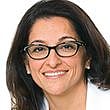
Sign up for the Daily Briefing
Get the latest news and updates straight to your inbox




